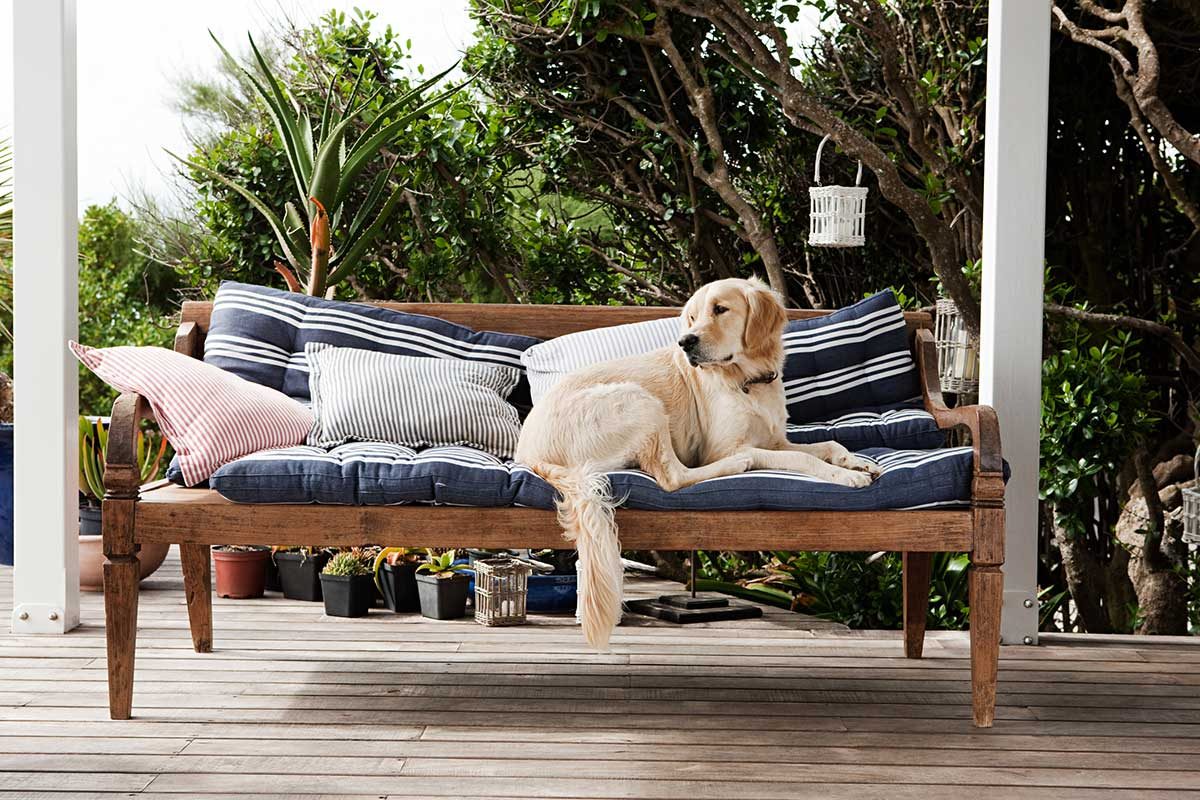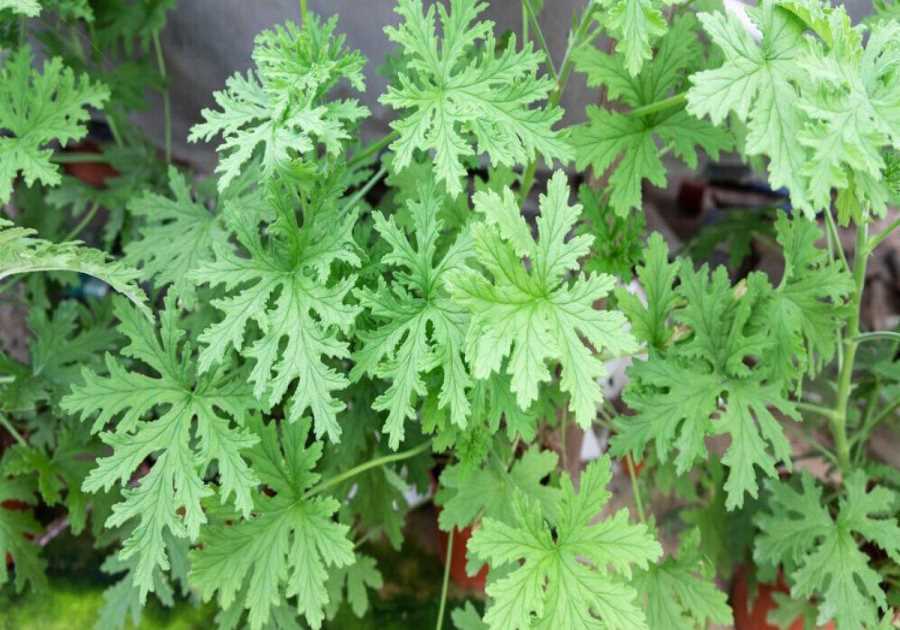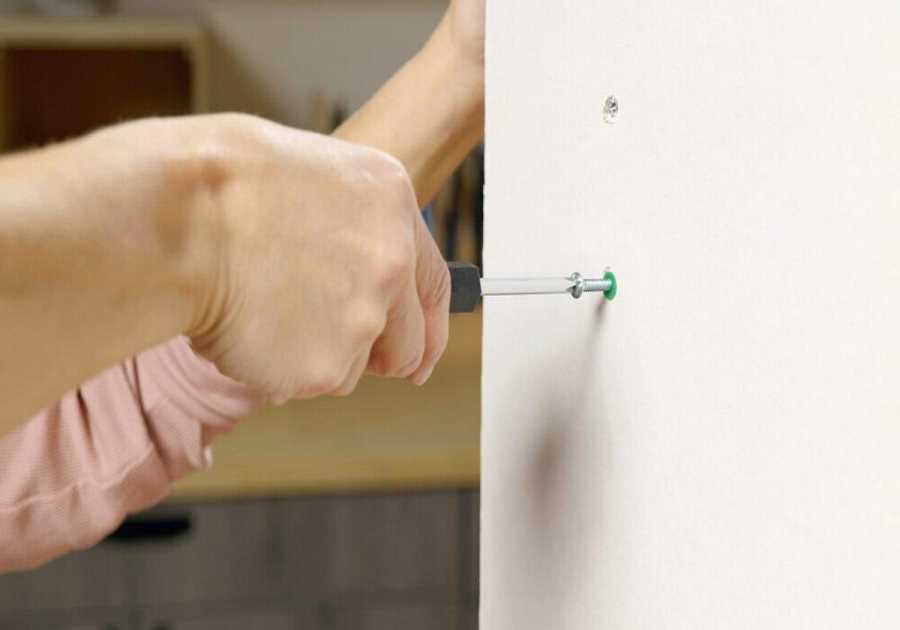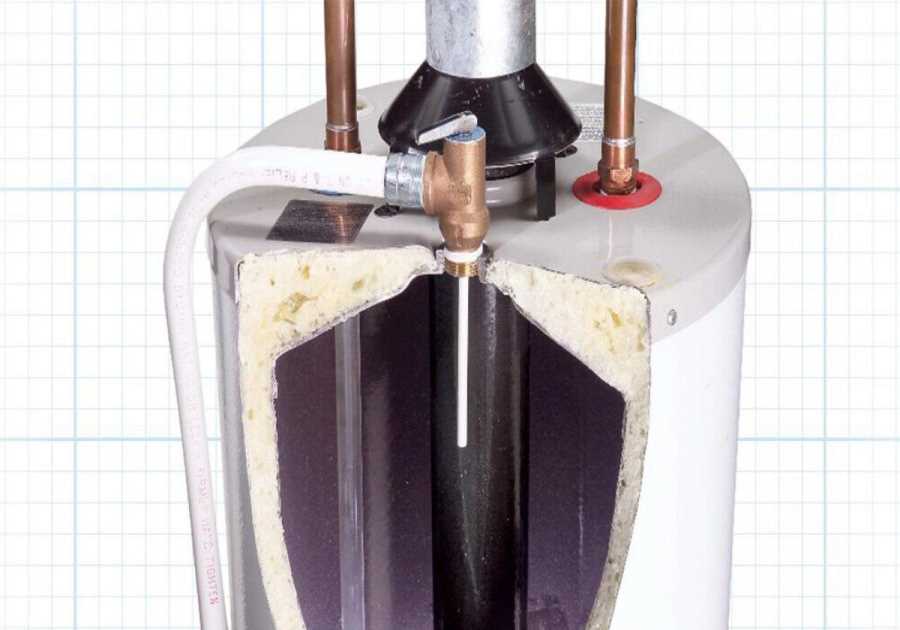Outdoor cushions bring indoor comfort to patios, porches and decks. While they are usually made to withstand moisture and UV rays, they still need TLC and routine cleaning. Adding this chore to your list is a wallet- and earth-friendly move. Taking care of your outdoor cushions means they’ll last longer, saving you money and keeping items out of the landfill.
Cleaning Outdoor Cushions: Preparation
Before you start cleaning, do a little prep work that will set you up for success:
-
Check for a care tag on your cushions and follow any instructions from the manufacturer. (No care tag? Search the manufacturer’s name online and see if the company has any information on its website.)
-
Test any cleaners or treatments on an inconspicuous spot to ensure the solution won’t damage the fabric.
-
Pick a place in your yard where you can clean the cushions and not damage plants with runoff that contains soap and other cleaning agents.
-
Make sure the spot where you are going to clean the cushions won’t get muddy. It may be best to lay down a tarp.
How To Clean Outdoor Cushions
Depending on what type of cleaning your cushions need, here’s what to do:
Routine cleaning for outdoor cushions
The team at Frontgate, an outdoor furniture company, recommends this simple method for routine outdoor furniture cleaning:
-
First, brush off any loose dirt.
-
Mix a cleaning solution of 1/4-cup mild soap, such as Woolite or Dawn dishwashing liquid, per gallon of lukewarm water.
-
Apply the mixture to the cushions with a sponge or a soft-bristle brush.
-
Let the soapy water soak into the fabric.
-
Rinse thoroughly with a garden hose on a low-pressure setting to remove all soapy residue.
-
Allow fabric to air dry.
If your cushions have removable covers, you can also soak them in the soapy water solution. Then sponge or brush gently if needed, rinse with clean water and let air dry.
How to clean heavily soiled outdoor cushions

For a deep clean, Alan Rampey, director, technical services at Sunbrella, recommends 303 Multi-Surface Cleaner, which is formulated for water-safe synthetic, natural and delicate fabrics.
Mildew will sometimes appear on cushions and requires adding bleach to the cleaning process. Always test bleach on a hidden spot before doing a full clean, and be sure to protect your clothes from bleach splashes.
“Become familiar with the limitations of your outdoor fabrics, and don’t use anything too harsh for your textiles,” Rampey says. “Sunbrella fabrics of all colors can stand up to cleaning with bleach, but other fabrics may fade with bleach use.”
The Frontgate team suggests this step-by-step method:
-
Mix a solution of one-cup bleach and 1/4-cup mild soap per gallon of water.
-
Spray on the entire surface of the cushion and allow to soak into the fabric for 15 minutes.
-
Blot any stains with a sponge or clean towel, or gently brush with a very soft-bristle brush.
-
Rinse thoroughly with a garden hose on a low-pressure setting to remove all soap residue.
-
Allow fabric to air dry.
How to treat stains on outdoor cushions
Just like on indoor upholstery, stains can happen outdoors, too, whether from food, dirt or grease. “The sooner you treat the stain, the better,” Rampey says.
Most liquid stains such as milk or red wine, he says, can be treated with a simple solution of mild soap and water:
-
Blot the stain with a clean, dry cloth.
-
Mix mild soap and water together and spray onto the spot.
-
Use a sponge or soft-bristle brush to clean the entire surface area, not just the visible stain. Rinse with a garden hose on a low-pressure setting with clean water to remove all soap residue.
-
Let the fabric air dry.
For greasy stains, like those from a dropped burger from a cookout, Rampey says to pretreat the fabric with a strong degreaser for 30 minutes to an hour. Be sure to keep the fabric wet. Use a sponge or soft-bristle brush to clean the entire surface. Finish by rinsing with a garden hose on a low-pressure setting until the soap residue is gone. Let the fabric air dry.
You can also use corn starch to absorb oily spills, Rampey says. Sprinkle corn starch on the spot and let it absorb the oil from the fabric. Remove the excess corn starch with a straight edge and clean away the residue with soap and water. Rinse with clean water until all the soap is gone. Then let the cushions air dry.
How To Keep Outdoor Cushions Clean
Tuck your cushions and furniture under water-repellent covers when not in use to help prolong their life and keep them clean. The Frontgate team says after a heavy rain, if the cushion covers have a zipper, open it and stand the cushions on end with the open zipper or seam side down to help drain away the water and expedite drying. Let the cushion’s core dry completely before using the cushions again.
If you notice your cushions looking a little tired after repeated cleanings and years of use, Frontgate says you can refresh them with a retreatment agent such as 303 Fabric Guard. This spray-on solution works to restore the water-and stain-repelling properties of outdoor fabrics.
Did you miss our previous article...
https://rsssuperfeeds.com/life-hacks/how-to-winterize-your-boat-or-trailer






